
“There is a lot of corporate strategy in volunteering”: how the creative community of Kharkiv lives during the war
08/02/2023
On 17 February, 2022, House of Europe opened its Pop-up Hub in Kharkiv. There was a cosy evening: the Kharkiv electronic duo Astronata played, the cultural coterie came, as well as the local initiatives known far beyond the city: the PLAN B festival organisers, Kultura Zvuku participants, the Kharkiv School of Architecture, and LUK media.
Soon, the French cinema night took place, and on 25 February, a creative advertising screening was planned. However, on 24 February, plans changed dramatically — a full-scale Russian invasion of Ukraine began. The school office turned into a humanitarian aid warehouse, and the team changed their profiles.
Vasylisa Haidenko, mentor, lecturer, and communicator of the Baggage School of Marketing and Communication, is now involved in the ARTDACHA Charitable Foundation activities. Maks Burtsev, a co-founder of the school, is engaged in the Volonterska organisation activities. Nataliia Rudenko, director of the school, is involved in volunteering and looking for new formats of courses.
We talked with Vasylisa, Maks, and Nataliia about the first days of the war in Kharkiv, the decision to volunteer and mutual aid, and whether communication skills help them in daily work under fire. Read the story and donate to ARTDACHA Charitable Foundation and Volonterska organisation to support Kharkiv.
Vasylisa Haidenko’s story
On 24 February, I woke up to loud sounds. At first, I thought it was fireworks until I suddenly realised that my window was closed and that sound was completely different.
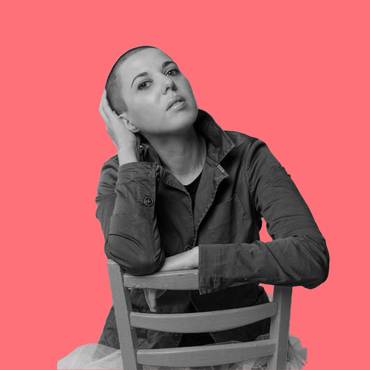
A few weeks before, my family and I had agreed on a plan: the first thing we would do was take my grandmother and dog out to the suburbs. I took care of the evacuation of my grandmother and went to meet my friends at Garage Hub. Everyone came to the hub with their pets. There were dogs, cats, and even a fish. In the evening, the friends moved to safer places. Even before the war, I decided that I would not go anywhere from Kharkiv Oblast, and in the evening we went to the suburbs to take the dog.
We returned to Kharkiv in three days. We had to go on foot because the transport was not running, and cars were not allowed in our direction. On the way, we saw smashed-up tanks, shell holes, and tired Ukrainian defenders. At night there was a battle here. The military offered us water and food, but we refused, saying that we did not need any help, on the contrary, we were coming back here to help them.
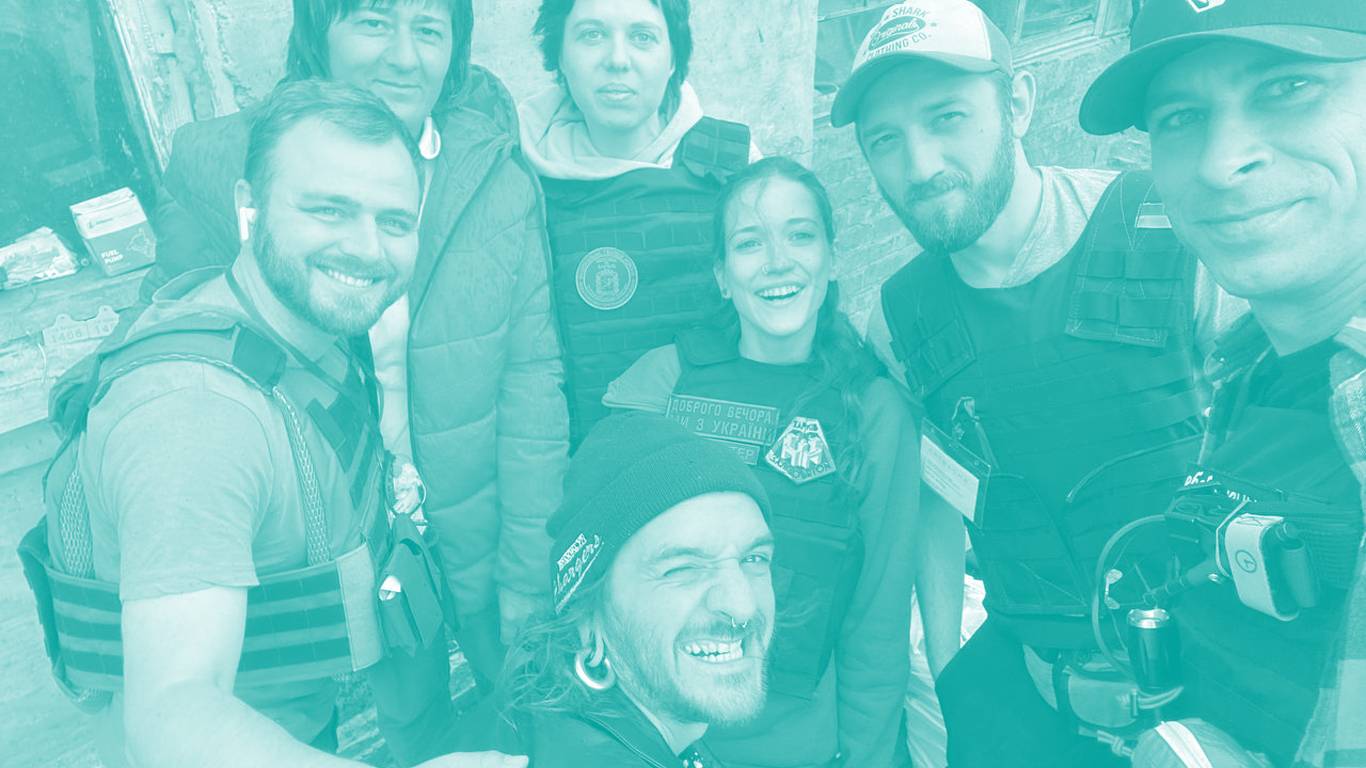
On 28 February, when we came to Kharkiv, we immediately began to be on duty at the Everything for Victory Reception Centre near the regional state administration, which has been operating since 2014. We sorted things. Here, the residents were bringing food and warm clothes, it was reminiscent of the Maidan days (December 2013 — February 2014, during the Revolution of Dignity — author’s note), when people brought everything needed to the volunteer tents. In the morning, we were going to the reception centre again, and once we left the house, we heard loud explosions in the area of the regional state administration. Rockets hit the building and nearby. There were many victims.
We immediately got in touch with those who remained in Kharkiv and united with friends and colleagues. This is how we began to help the people who stayed in the city. Someone found humanitarian supplies, someone prepared hot meals, someone packed, and someone delivered it all. Our ARTDACHA Charitable Foundation took upon itself the task of finding the necessary things for residents.
From the first days, we worked closely with Maks Burtsev (mastermind of the Baggage School — author’s note). He gave us interesting tasks, such as finding an ‘ambulance’ that would take women in labour to Dnipro. We organised evacuation, transportation to the hospital, and the search for prescription drugs. And we were in contact every day. Maks sent vegetables and other useful things needed here by the carload.
We call Mariam Yol, producer of Baggage, a hundred times a day. Together, we collected and sent several buses and a humanitarian aid bus to Piatykhatky, when there was a humanitarian disaster there, and we took people out of hot zones. With the team, we built a whole network of friendly headquarters.
About tasks and needs of people
Some tasks appear unexpectedly. For example, a person has 11 cats and does not know what to do with them. Once we took a man and his Labrador dog to Poltava and put them in a school there. Soon he calls me and cries: “I am being kicked out because this Labrador gave birth to 10 more Labradors.” I found a car that took the puppies to the suburbs, where we arranged comfortable conditions for them. The man is happy and so are his dogs because they are taken care of.
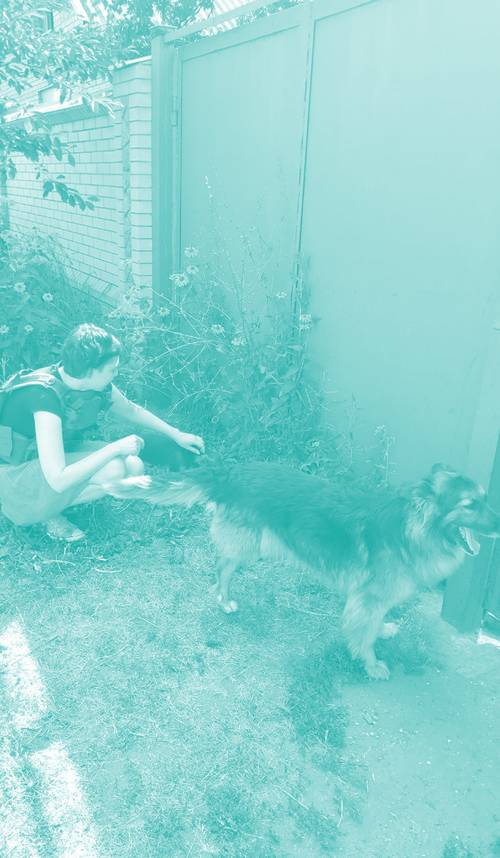
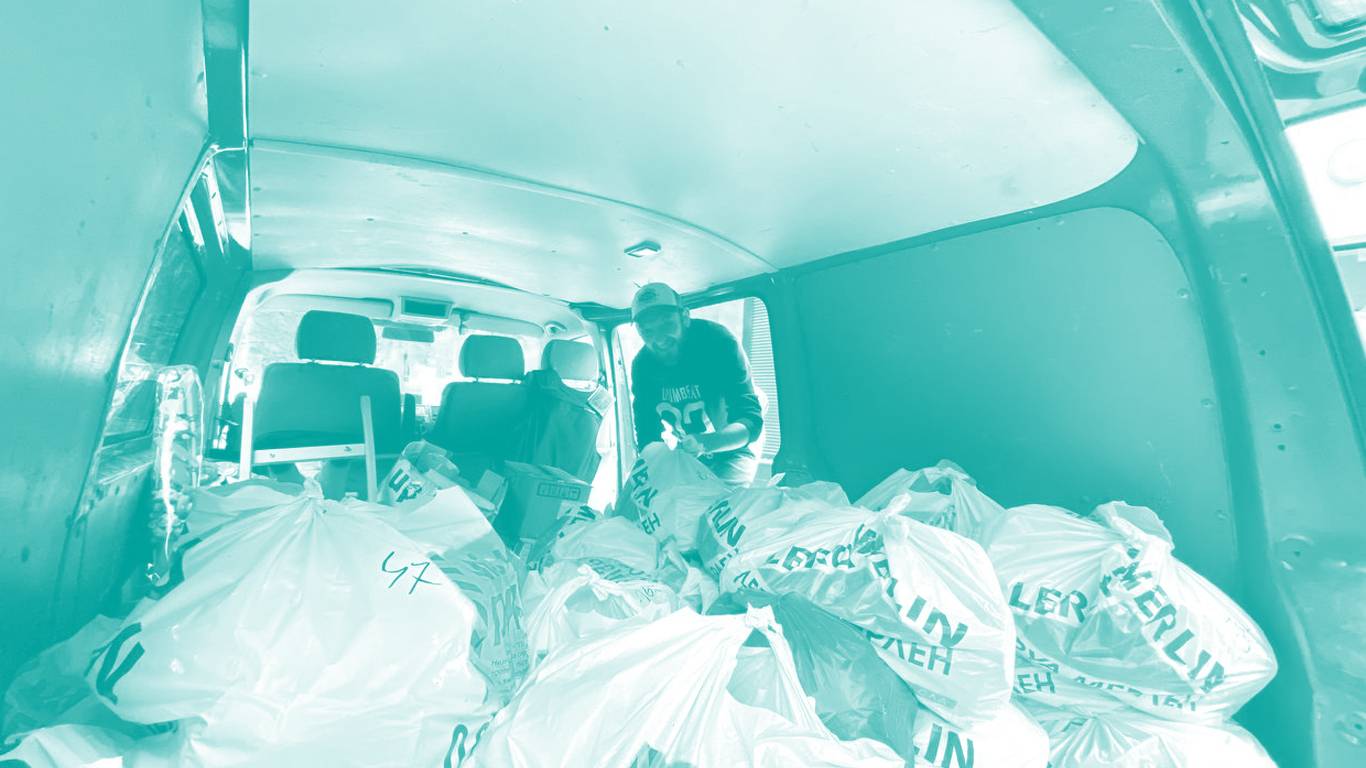
Unexpectedly for ourselves, we got involved in the evacuation. Once I came to the largest location where we deliver food: at that time there were 500 people living there, it was a basement. It had the worst conditions I have ever seen in my life. The ground was spread out on two sides, under the walls stood desks with sleeping pads and bags on which grandmothers were lying, some of whom were put on drips. There I realised that people had to be evacuated. We took them to Poltava, Poltava Oblast, and Dnipro, as well as abroad, particularly to Austria and Lithuania.
A project can be born from one trip or situation, and villages we care for can appear after one phone call. A man called me late one evening, saying that he was serving near Izium and was not able to help his mother in the village located in the ‘gray’ zone. And the inhabitants lacked food. So we began to take care of the people from that village, as well as the local dogs, cats, and baby goats that had just been born.
The people around me are great support; until 24 February, I had no idea how much we can do together. When I call Viktor Ivanovych from the Zinkiv community of the Poltava Oblast, where we evacuated about 200 people, and ask him how things are going, he says: “Dear Vasylisa, the sun is shining, the tulips have bloomed, we are fine, do not worry. Have I already sent you a picture of daffodils?” He never complained about people, although he took on a very responsible function.
My colleague Mariia Kakurina organised Ukrainian Zen, a psychological rehabilitation camp for children and adults, which helps to adapt to a new life and survive war traumas. The camp was held in August, and 285 people attended it.
Today, we deliver food products, medicines, hygiene products, and household chemicals to the frontline zones. There is a great need for fuel for generators and fire extinguishers because fire lorries and rescuers cannot always reach damaged objects due to constant shelling. Help is needed by the Kharkiv citizens from vulnerable groups who are unlikely to manage on their own without it.
About skills from a past life
I have skills in corporate strategy, communication management, and mentoring. But now we are talking about completely different scales.
When I previously conducted trainings at the Baggage School, I was not responsible for the lives of the participants. And now we have thousands of grandmothers who will remain hungry without help, and the level of responsibility here is completely different. I think that my past experience came in handy — for a long time I managed the marketing department, we made a project for people with mental disabilities, and were responsible for their employment and future. But here the responsibility multiplied a hundredfold.
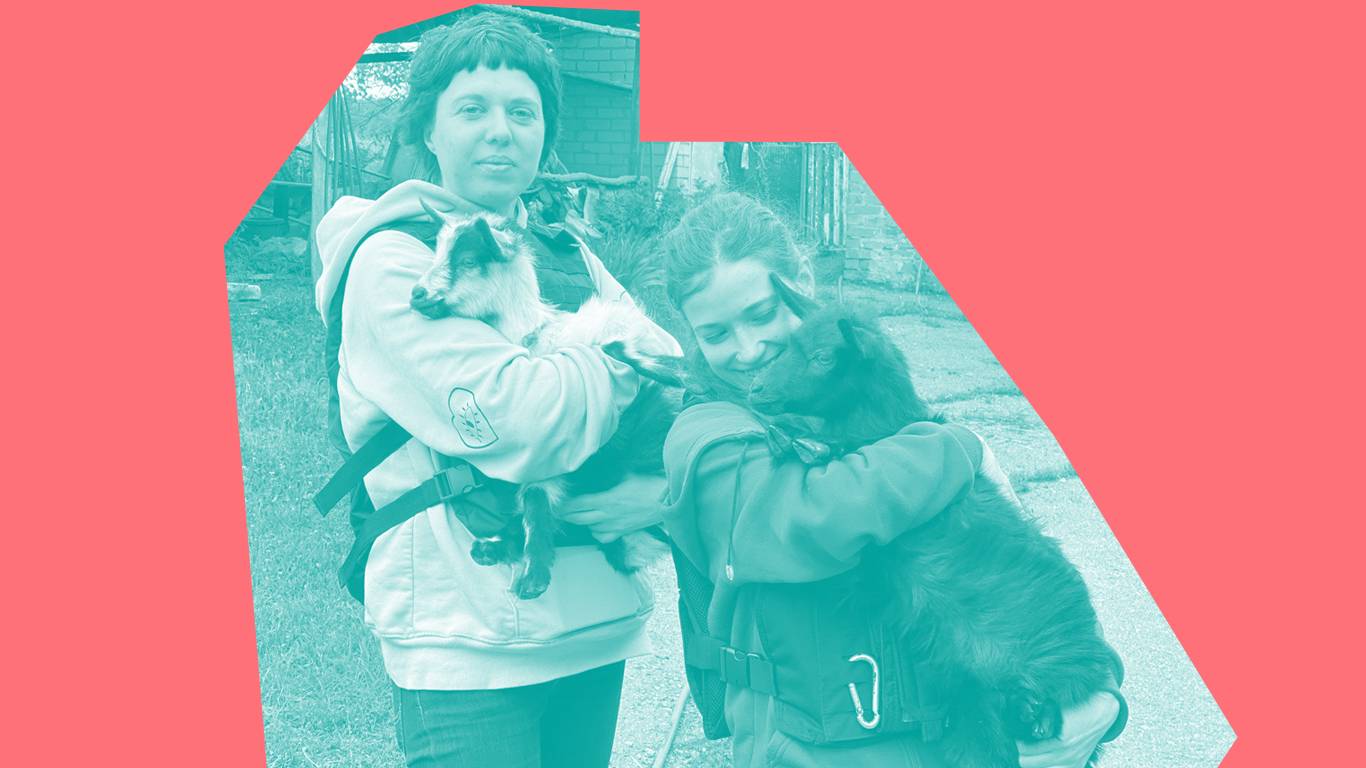
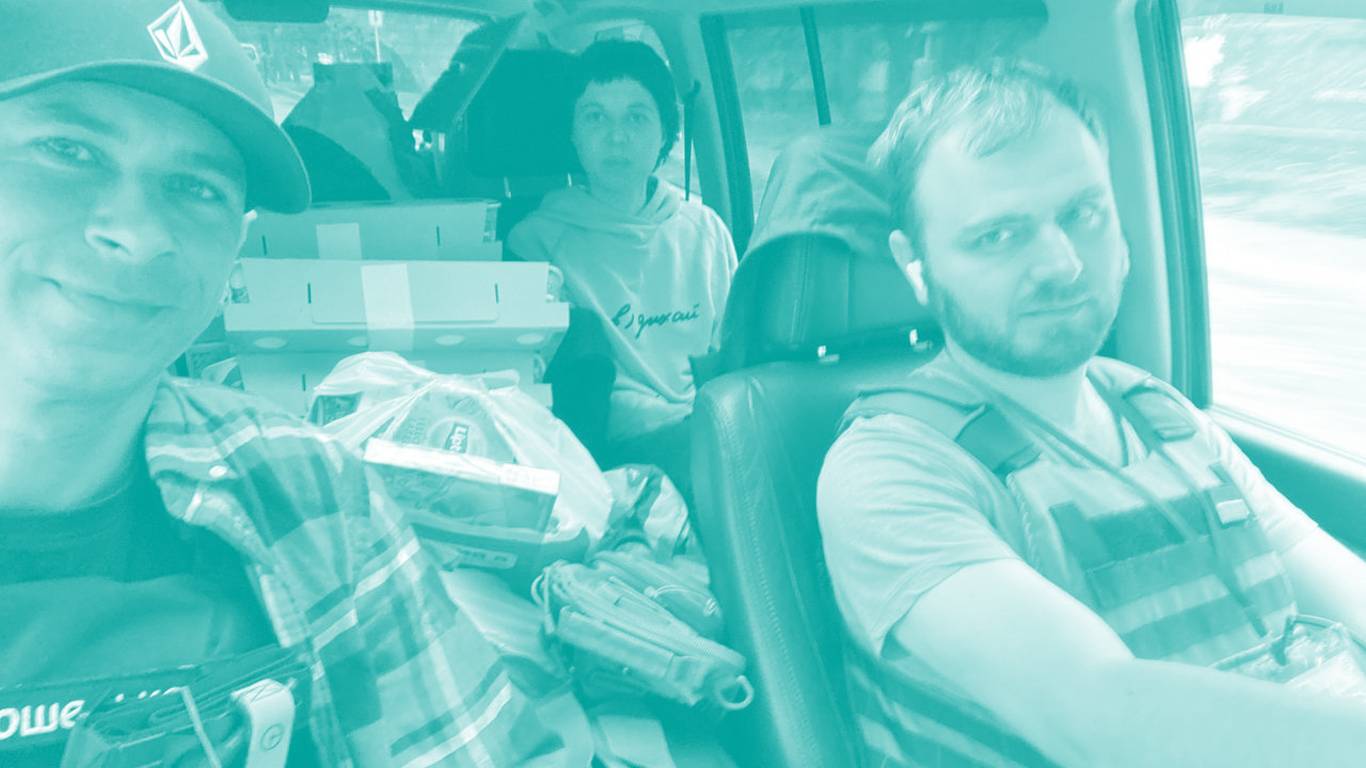
About plans
The first thing is to start a food truck together with partners and feed people with tasty and nutritious food. The second thing is to continue helping those in need. And the most large-scale plan is to launch a shelter together with partners.
There are many damaged houses in villages that are under constant shelling. When the cold comes, we have to be ready to take people out to keep them alive.
We expect that more than 1,000 people will pass through the shelter during the year. It will be temporary housing from which we will transport them to safer places. We are also planning to set up a shelter for animals on its territory so that the owners can be with their pets. We will equip a children’s room and a medical office. Also, we will build a sports ground in the courtyard closed from all sides. Today, we are looking for partners and working on the implementation of the project.
Maks Burtsev’s and Nataliia Rudenko’s story
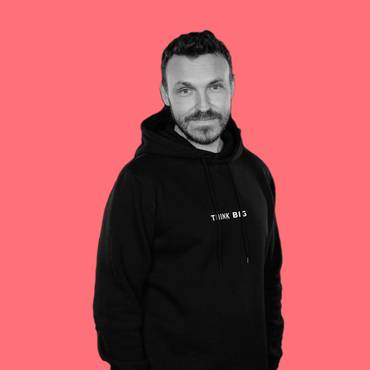
It seems to me that 24 February began for Ukrainians in roughly the same way. It is just that people chose different paths after that. On that day, my previous life ended and a new one began. I did not hear explosions outside the window, my wife woke me up. I lay for several hours trying to figure out what I should do in this new world. We gathered as a team to evacuate relatives and friends from Kharkiv to Poltava or Dnipro. Already on the way, we realised that it would be difficult or even impossible to return. And it was then that a strong sense of guilt arose that we did not sufficiently help the military all these eight years, did not prepare the city and the country in general. It was comprehensive. So we started thinking about what we could do now.
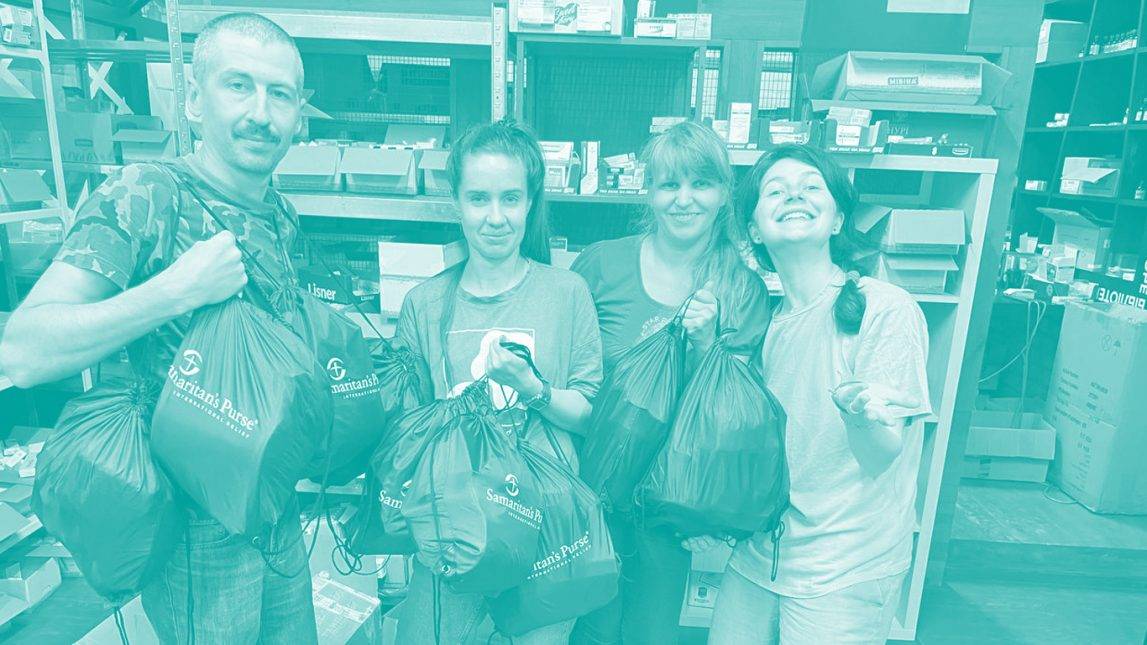
At first, as creatives, we decided to do what we do best — communicate. We tried to get the Russians to go out, protest, and tell everyone what was happening here. We still believed that it would help somehow. Already in the first days, thousands of questions appeared from different people: “How to leave?”, “How to install windows if they are broken?”, “There is not enough food in the community, what to do?” Of course, we helped as much as we could. It was difficult for me because I was used to building processes and evaluating results, in other words, running a business. And the first three weeks were fruitless and chaotic. I felt the need to do it in a structured way. This is how the Volonterska Foundation appeared. We knew that it would not be possible to help everyone at once, and it would be more effective to focus on specific population groups and create lists of people and locations. And we began to support the elderly and people with disabilities.
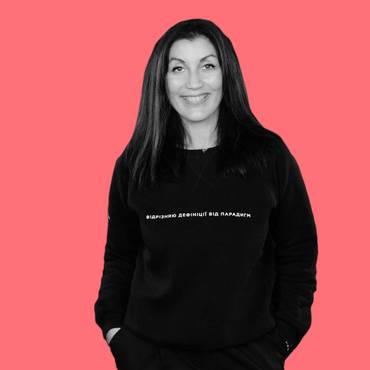
Maks: First, we received applications on the hotline. Then we contacted various charitable foundations, trying to get what we needed. But we saw that it was not productive. That is why we decided to arrange our own warehouse at the Baggage Hub and fill it with the necessary things.
Nataliia: I remember the first days of the war minute by minute. You do not forget such important days. I had a few of these: the births of my children and the first days of the full-scale war. We evacuated our loved ones to the west of Ukraine, and we stayed in Kharkiv to help. At first, it was difficult to understand who, among creatives, is volunteering and in what way. We felt the need to do something with our hands and started baking bread, communicating with checkpoints about their needs, and packing humanitarian aid. The Baggage team has grown: the school graduates, lecturers, and other philanthropists have joined us.
About tasks and needs of people
Maks: I think that the request for humanitarian aid will only grow every month. There will be less and less surviving apartments in which people will be able to live, and less and less money, and the cold season will come. Most people with a stable financial situation evacuated. There remain those who do not have the opportunity to leave.
Now we have opened a new area of work — for preparing for winter. We arrange ordinary basements so that there is everything you need. We also repair houses and apartments, install windows, create such conditions in apartments that people can live even without heating.
And another important task is supporting the Armed Forces of Ukraine. Once I sat and thought: what must happen for Kharkiv to live? First of all, people. For people to be here, they must feel safe, so that no rockets fly over them. How can I influence this? We learned from scouts that they are in dire need of a drone that can destroy enemy artillery and rocket launchers located near the city. So we started raising funds for the drone.
What are our needs? It is money, of course. We cooperate with four large foundations, and with their help we managed to fill the pharmacy and food warehouse. But grants are not regular. They appear as one-time support, so once we close our needs, we are left without funding again. Smaller but regular grants are better than one big one for a short period. So we are constantly searching.
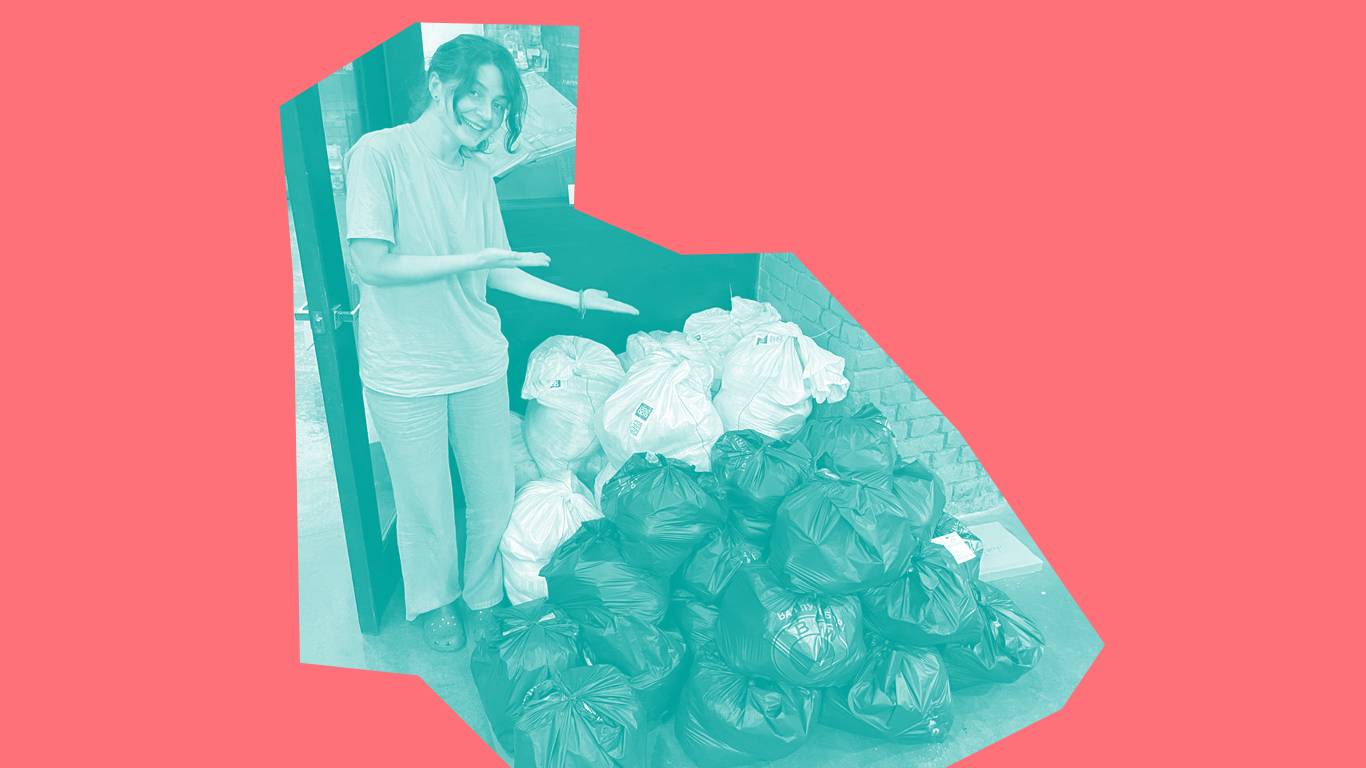
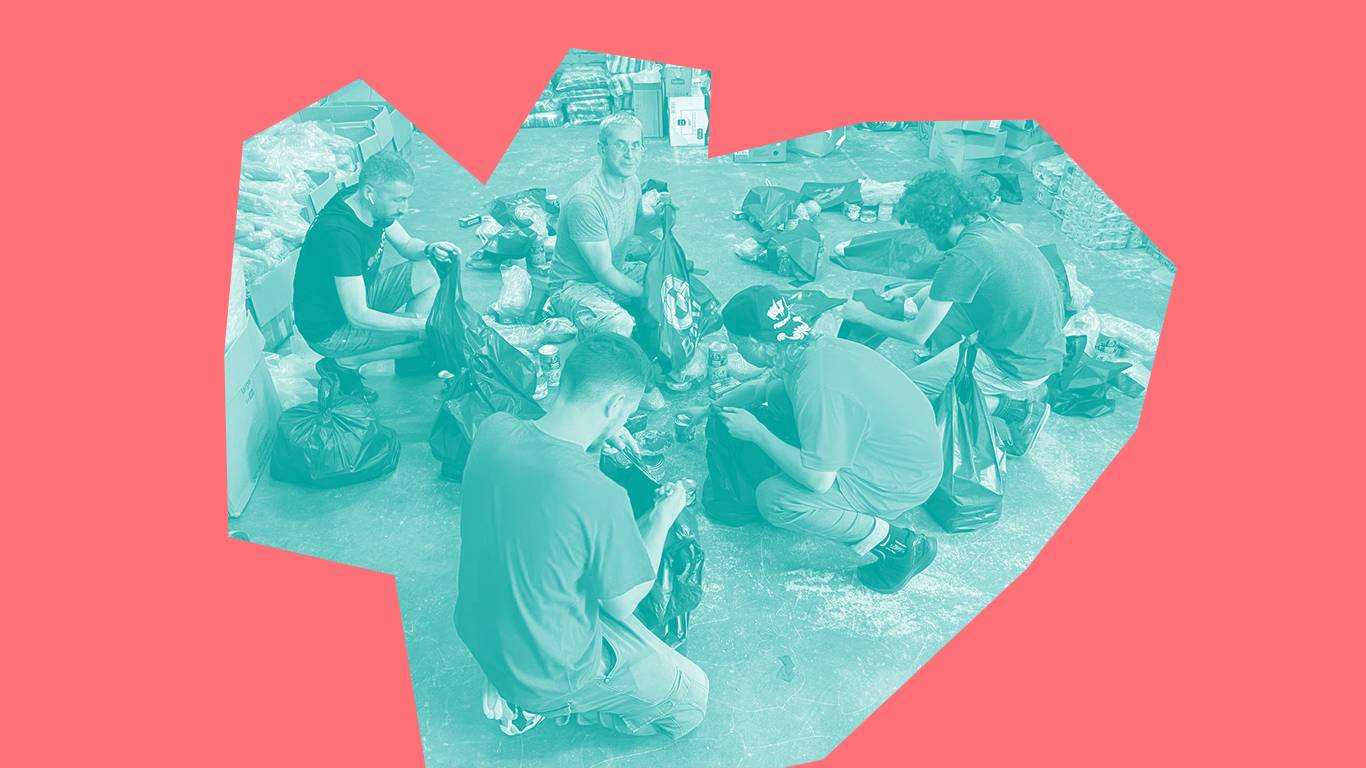
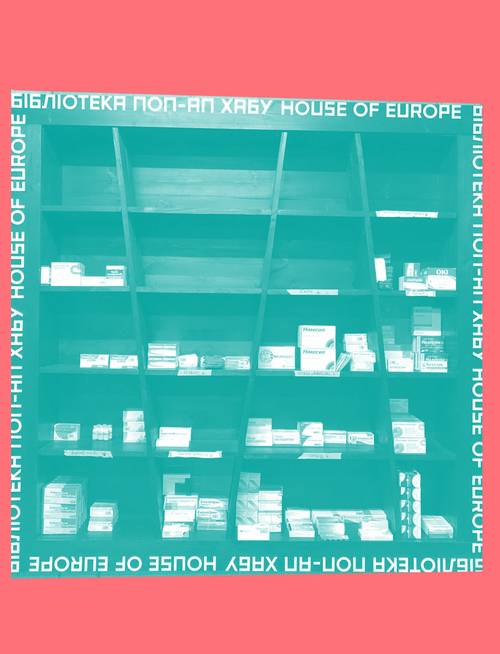
About skills from a past life
Maks: I do not really like networking and I never stay for after-parties. But when I started volunteering, I realised how important contacts and reputation are. I would never have believed that I would meet the deputy of Valeriy Zaluzhnyi, the Commander-in-Chief of the Armed Forces of Ukraine, or that one phone call could help find humanitarian products for half a million hryvnias.
If you look at volunteering and business from the point of view of the organisation, they have common features. There should be a goal, results, distributed responsibilities, an understanding of what happens at each stage, and who does what. It was the experience of running a business that helped me build a system volunteer hub. I still do not know a lot about volunteering, and I admit it.
About plans
Maks: People return to the city. According to the mayor, approximately 2,000 cars arrive in Kharkiv every day. The number of people living here now is close to 800,000. But due to the recent, very strong shelling and missile strikes, the flow became smaller, and some people who managed to return left again.
Nataliia: Our school is not about business, but about people. For us, live communication has always been important, so we did not particularly work with online courses. However, in October we plan to launch the first English-language online course with European lecturers for Ukrainian creatives. Offline training has been stopped for now. Part of our team is volunteering, and part of the lecturers is fighting. But the students do not leave, but wait for a continuation when it is possible.
Maks: I talk to a lot of studio executives and I understand that we all share a common pain right now. No one was ready for the drastic reformatting of the work for a Western audience. How to enter that market? How to communicate? What are the rules?
I think our strength is that we are not just a school that teaches crafts, we impart values: empathy, critical thinking, etc. Many people need it. I believe that after the end of the war, we will be able to work with those who did not have access to education. And we will organise a loud party in honor of the victory with all Kharkiv citizens.
Since the full-scale war of Russia against Ukraine started, we have supported the school of marketing and communications Baggage, funding medicine and humanitarian aid for Kharkiv citizens. If you also want to benefit from EU support, browse our opportunities catalogue to find a perfect open call.
Text: Oksana Semenik
Editing: Viktoriia Osipova
Translation into English: Julia Didokha
Stories
-
Katarina Mathernova: If Ukraine had a human face and a human spirit, it would be 10-year-old Roman Oleksiv
-
A regional mission to drive social entrepreneurship: the story of Ksenia Kosukha
-
EU restores safe water supply for 100,000 Ukrainians affected by war
-
Promoting IT during the war: Lviv IT cluster and how EU4Digital helps
-
Frontline digitalisation: Kharkiv IT Cluster collaborations
-
How EU4Youth is driving opportunity and success among young Ukrainians